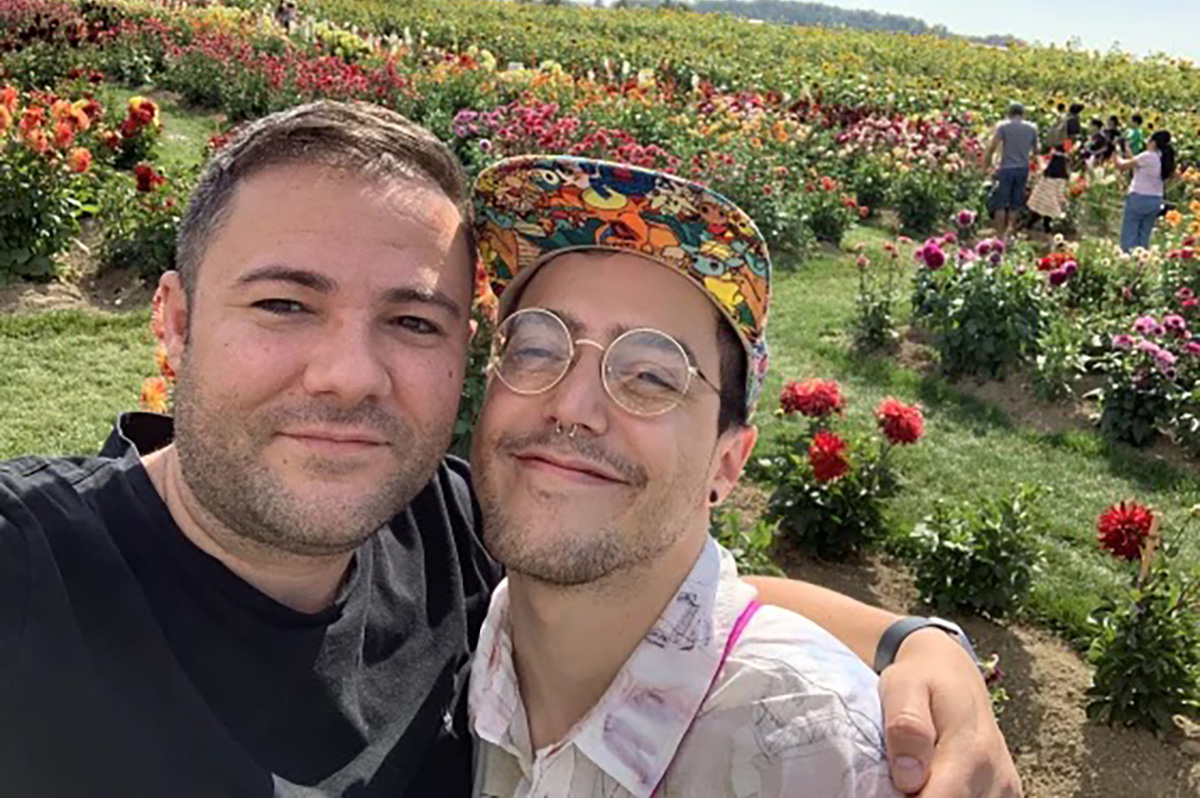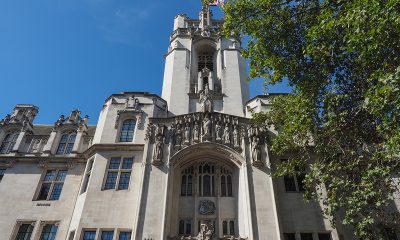World
Report: Anti-LGBT violence, discrimination pervasive in Asia
Researchers interviewed 370 people in five countries

IGLHRC’s report focuses on the Philippines and four other Asian countries. (Photo by Junbay; courtesy Wikimedia Commons)
IGLHRC worked with women’s, sexual minority and gender rights groups in Sri Lanka, the Philippines, Pakistan, Malaysia and Japan to interview 370 people — including service providers and advocates — in the five countries from Nov. 2010 through March 2012.
The report notes laws that ban violence against women in Asia were “directly” or “indirectly discriminatory” because they do not extend “adequate protections — or in some cases any protections” to lesbians, bisexual women and trans people. IGLHRC found officials in each of the five countries “not only failed to prevent, but also condoned violence against female-bodied and transgender people.”
Respondents told IGLHRC that emotional abuse was the most common form of violence committed against them, with family members as the primary perpetrators.
The report further notes lesbians, bisexual women and trans people in Asia reported an “unexpectedly high occurrence” of domestic violence. IGLHRC also found heterosexual men were most likely to commit acts of sexual violence against the aforementioned groups.
More than a dozen trans Malaysian women with whom IGLHRC spoke said authorities or Islamic officials arrested them while they were performing in clubs, hanging out or eating outside.
A trans woman in the Malaysian city of Penang told researchers that police asked her for the equivalent of $5-$6 in “protection money” in exchange for not being arrested. A Malaysian Muslim trans woman — known as a mak nyah in Malay — said she was sentenced to a year in jail after authorities arrested her for wearing women’s clothing in a food stall and charged her with “posing as [a woman]” under local Islamic Sharia law.
A 40-year-old woman who lives in the Pakistani city of Karachi said her mother threatened to burn her genitals with an iron as a young child when her brother caught her “fooling around with another girl.” A 36-year-old lesbian who lives in a suburb of the Sri Lankan capital of Colombo said her father beat her after a former girlfriend outed her when she “made a scene outside her house.”
The IGLHRC report notes an incident during which several men publicly assaulted a trans woman on the street because “they were offended by her wearing a dress.” The men allegedly beat her, cut her hair and threatened to shoot her with a gun.
“There are still no laws that protect LGBT people from violence and discrimination,” Kate Montecarlo Cordova, chair of the Association of Transgender People in the Philippines, told the Washington Blade in an e-mail.
More than 50 percent of lesbian, bisexual women and trans people in Japan said they have considered suicide. One of the trans men with whom researchers spoke killed himself before IGLHRC released the report.
More visibility has caused ‘greater frequency’ of violence
The IGLHRC report concludes greater visibility of LGBT people has resulted in a “greater frequency” of violence against lesbian, bisexual women and those who are gender non-conforming in Asia. It states this mistreatment was “especially noticeable” in countries where religion was “used to justify and intensify intolerance.”
“High-level government officials endorsed intolerance and even actively participated in promoting harmful messages that encouraged abuse or discrimination against LBT individuals,” reads the report. “Government-controlled media and state-supported religious leaders perpetuated cultural messaging that preached intolerance against individuals with non-conforming sexual orientation, gender identity and gender expression.”
IGLHRC and the groups that conducted research urge governments in each of the five countries to “ensure an environment that is supportive of all women’s rights.” They also said authorities must prevent violence and promote “the safety and dignity of all marginalized and vulnerable populations.”
The groups call upon governments to denounce religious rhetoric that promotes anti-LGBT discrimination and violence. IGLHRC further urges them to comply with various international treaties that specifically address lesbian, bisexual and trans issues.
“State actions must be accompanied by stronger community capacity for sustainable and supportive interventions as part of civil society accountability to vulnerable communities,” reads the report. “It should not be the expectation that individual LBT victims be self-reliant and resilient in order to deal with violence on their own while waiting for state action to reduce violence.”
Homosexuality remains criminalized in Pakistan, Sri Lanka, Malaysia and the Filipino city of Marawi that is in the country’s Autonomous Region in Muslim Mindanao.
A Malaysian court on March 7 sentenced former Deputy Prime Minister Anwar Ibrahim to five years in prison after overturning his acquittal of charges under the country’s sodomy law. The opposition leader had been the frontrunner in elections that took place a few weeks later that determined the next head of government of Selangor Province outside Kuala Lumpur, the Malaysian capital.
The IGLHRC report comes against the backdrop of growing global outrage over the new Bruneian penal code that punishes those convicted of homosexuality by stoning them to death. The Indian Supreme Court last month said it would hear a motion to reconsider last December’s controversial ruling that recriminalized homosexuality in the world’s second most-populous country.
The Indian Supreme Court on April 15 issued a landmark ruling that recognizes trans people as a “third gender.”
Neighboring Pakistan, Nepal and Bangladesh have also legally recognized trans people.
Japanese lawmakers in 2008 passed a law that allows trans people to legally change their gender once they undergo sex reassignment surgery. Gay Pennsylvania state Rep. Brian Sims is among those who spoke at a reception that U.S. Ambassador to Japan Caroline Kennedy hosted at her Tokyo home last December to commemorate the 65th anniversary of the ratification of the Universal Declaration of Human Rights at the U.N.
Mexico
Gay couple claims Puerto Vallarta wedding venue discriminated against them
Jeremy Alexander and Ryan Sheepwash wanted to get married at Sheraton hotel

A gay couple claims a hotel in a Mexican resort city that is popular with LGBTQ travelers discriminated against them when they tried to book their wedding.
Jeremy Alexander and Ryan Sheepwash in a TikTok video said they contacted the Sheraton Buganvilias Resort and Convention Center in Puerto Vallarta about holding their wedding at the property.
The couple, who live in Vernon, British Columbia, provided the Washington Blade with an invoice that Gabriela Espinoza, a wedding planner at the property, sent them on Jan. 17, 2025.
The invoice said 25 “deluxe ocean view room — all inclusive” rooms cost $970 a night. The total cost for the 25 rooms was $72,750.
Alexander in the TikTok video said it took Espinoza three months to send them the quote. The property, according to Alexander, requested a $36,000 deposit for half of the rooms.
“It’s not reasonable,” he said. “No one can afford that.”
Alexander said Espinoza told him and Sheepwash that the earliest they could have their wedding at the property was March 2027. Alexander in the TikTok video said he and Sheepwash asked a straight friend to “request a quote just to see apples to apples what it looks like.”
Ximena Esparza, another wedding planner at the property, on Feb. 7, 2025, sent the friend a quote for 25 rooms for a hypothetical wedding that was to have taken place from Feb. 19-26, 2026.
The quote for a “deluxe package” for 50 people was $8,500 and required a 20 percent deposit of $1,700.
“We just feel defeated,” said Sheepwash in the TikTok video. “It’s not fair because we love each other and we really want to get married, and we want to make it special and we want to make it perfect.”
@illuminaughtytriangle So disappointed that my fiancée and I got discriminated against by #Sheraton in #puertovallarta ♬ original sound – Jeremy Alexander
The Blade in 2019 reported the Sheraton Buganvilias Resort and Convention Center refused to allow Josh Rimer, a gay Canadian vlogger and television host who is also Mr. Gay Canada 2019, and his then-fiancé to hold their wedding at the property.
The invoice that Espinoza sent to Alexander and Sheepwash notes the hotel is “operated under license from Marriott International, Inc., or one of its affiliates.”
A spokesperson for Marriott, which is based in Bethesda, Md., and is Sheraton’s parent company, in response to Rimer’s allegation said the corporation reached out to him to express “our sincerest apologies for his experience.”
“We are troubled and greatly concerned about the experience reported by Mr. Rimer. Marriott has long been committed to providing an environment where all are welcome including our LGBTQ guests and their loved ones,” said the spokesperson. “In addition, we are looking further into the matter to better understand what happened and do what we can to prevent hurtful experiences like this from happening again.”
A Marriot spokesperson on Thursday told the Blade the company has “reached out to Mr. Sheepwash and Mr. Alexander to learn more about their experience and are working with the property to offer a solution.”
“The Sheraton Buganvilias has been active in the LGBTQ+ community in Puerto Vallarta for years, hosting LGBTQ+ weddings and groups and also supporting Pride events in Puerto Vallarta,” said the spokesperson. “Marriott remains steadfast in our commitment to ensure guests are treated with respect and understanding.”
Chile
Transgender woman sues Chilean national police
Isabella Panes alleges she suffered harassment, exclusion after becoming ‘carabinera’

Isabella Panes in 2022 was celebrated as a symbol of inclusion.
Wearing an olive green uniform and a shy smile, she appeared in the media and on social media as Chile’s first trans female “carabinera” or national police officer. The Carabineros promoted Panes as a sign of openness, but that story has become a dramatic case of institutional discrimination.
Panes today faces the Carabineros in court.
She has denounced a series of systematic acts of exclusion, harassment at work, and violation of fundamental rights that she and her defense team maintains pushed her into a mental health crisis that almost cost her her life.
“My hope is that tomorrow we will be able to live in a world of equality for all. Just that we understand that we are human beings and we have to make life a lot easier for each other,” Panes told the Washington Blade during an exclusive interview.
Panes, 29, grew up in Laja in the Biobío region.
She dreamed of becoming a “carabinera” since she was a child, despite the fact that she faced discrimination because of her gender identity. After years of effort, surgeries and a difficult transition, Panes enrolled in the Carabineros Academy in 2021.
Panes faced the challenge of making her medical processes compatible with the physical demands of training. Even so, she graduated with good marks, and was recognized as part of the new institutional image the Carabineros wanted to project after the 2021 social unrest tarnished their image.
This institutional support disappeared after the media campaign.
Panes alleges she was marginalized from operational duties and relegated to administrative tasks, despite her interest in and training to patrol the streets like any other officers.
“I joined the Carabineros to serve, not to be a marketing decoration,” she said. “I was offered to be part of the change, but only if I kept quiet and accepted the mistreatment.”
The accusations against the Carabineros are serious: Constant mockery by colleagues, dissemination of private information about her personal life, invasive questions about her body and sexual orientation. Panes’s legal representatives said this abuse took place within a context where the institution did not take effective measures to protect their client.
The Carabineros Social Security Administration, known by the Spanish acronym Dipreca, also refused to cover her transition-related medical procedures, arguing they were “aesthetic,” despite medical reports that indicated their importance for Panes’s mental health and well-being.
Panes in January attempted to kill herself by suicide. She managed to survive after calling Chile’s 4141 mental health care number for help.
“They were killing me slowly, from the inside,” said Panes.
Panes has brought her case to the Supreme Court after a lower court ruled in favor of Dipreca’s decision to not cover her medical treatments.
Her legal team in a lawsuit has also accused the Carabineros of employment and systematic discrimination. Panes is seeking damages and institutional reforms.
“The Carabineros used Isabella to clean up its public image, but when it came to guaranteeing real rights, they abandoned her,” said Javiera Zúñiga, spokesperson for the Movement for Homosexual Integration and Liberation, a Chilean advocacy group.
“It is not enough to show up at the Pride march,” she added. “True inclusion is demonstrated in deeds, in daily dealings, in respect for the dignity of all people.”
Panes’s case starkly exposes the limits of diversity policies when there is no deep institutional commitment to implement them.
“I am no longer afraid,” said Panes, ”What happened to me cannot happen again. Not for me, but for all those who come after me.”
Brazil
US lists transgender Brazilian congresswoman’s gender as ‘male’ on visa
Erika Hilton has represented São Paulo since 2022

A transgender Brazilian congresswoman says the U.S. issued her a visa that listed her gender as “male.”
Erika Hilton on Wednesday wrote on her Instagram page that she requested a visa that would have allowed her to travel to the U.S. in order to participate in the Brazil Conference at Harvard University and the Massachusetts Institute of Technology.
The conference took place earlier this month.
“I was classified as ‘male’ by the U.S. government when I went to get my visa,” wrote Hilton, who added a visa she received from the U.S. in 2023 listed her gender as “female.”
Hilton is a Black travesti and former sex worker from São Paulo who won a seat in the Brazilian Congress in 2022. The Washington Blade spoke with Hilton shortly after her election.
“It is a big responsibility … but I feel very honored,” said Hilton. “I very much like to be able to be a representative for my people, and the more than 250,000 people who voted for me have confidence in me,” she said after she spoke at a rally in support of now Brazilian President Luiz Inácio Lula da Silva in a São Paulo square. “This demonstrates that our work has the potential to have a gigantic reach; where we can advance efforts to end death, poverty, misery, genocide that we have.”
President Donald Trump in his inaugural speech announced the federal government’s “official policy” is “there are only two genders, male and female.” The Trump-Vance administration has also banned the State Department from issuing passports with “X” gender markers.
Germany and Denmark are among the countries that have issued travel advisories for trans and nonbinary people who plan to visit the U.S. These warnings come ahead of WorldPride, which is scheduled to take place in D.C. from May 17-June 8.
Hilton said she is “not surprised” the U.S. issued her a visa with a male gender marker.
“I’m also not surprised by the level of hatred and fixation these people have with trans people,” she said. “After all, the documents I presented are rectified, and I’m registered as a woman, even on my birth certificate.”
Hilton further accused the U.S. of “ignoring official documents from other sovereign nations, even from a diplomatic representative.”
“At the end of the day, I’m a Brazilian citizen, and my rights are guaranteed and my existence is respected by our own constitution, legislation, and jurisprudence,” she said.
Editor’s note: Duda Salabert, another transgender Brazilian congresswoman, also said the U.S. listed her gender as “male” on her American visa.
-

 El Salvador4 days ago
El Salvador4 days agoGay Venezuelan makeup artist remains in El Salvador mega prison
-

 State Department3 days ago
State Department3 days agoHIV/AIDS activists protest at State Department, demand full PEPFAR funding restoration
-

 Opinions5 days ago
Opinions5 days agoScience must not be a weapon against trans people
-

 Maryland5 days ago
Maryland5 days agoMd. schools plan to comply with federal DEI demands











